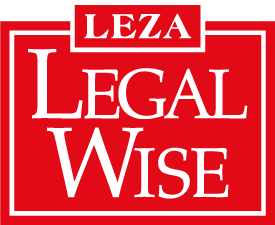Consumer Protection Act
What is the Consumer Protection Act about?
- The Consumer Protection Act makes provision for the establishment of a Consumer Protection Office; to provide for the protection of the interests of consumers by means of investigation, prohibition and control of unfair business practice; to disseminate consumer-related information; and to provide for matters connected with and incidental to the foregoing.
- It mandates the Consumer and Competition Authority to protect the interests of consumers by means of investigation, prohibition and control of unfair business practices. Some functions under Consumer Protection are:
- To conduct research on consumer protection policies, laws and regulations and to make recommendations on improvements required;
- To receive, investigate and preside over disputes of unfair business practices with the objective of assisting the parties to the dispute to reach a settlement.
Who is eligible to lodge a complaint against unfair business practices?
- Any consumer, class of consumers or consumer organization.
- Any consumer whose interests/rights are violated and having not obtained redress from the business may lodge a consumer complaint of unfair business practice.
Does the Consumer Protection Act apply to all agreements?
- The Act applies to a consumer, class of consumers or consumer organization who have been directly or indirectly unfairly affected by unfair business practices from suppliers.
- The Authority shall be responsible for the administration of this Act and may permit and consider representations made by any class of consumers and consumer organization on any matter of consumer protection and may cooperate with and support the activities carried out by consumer organizations as may be reasonably considered by the Authority.
What type of protection does a consumer get from the Consumer Protection Act?
- The Act makes it a criminal offence to make false or misleading representations by word or conduct with respect to the goods or services being sold.
- It prohibits suppliers from offering gifts, prizes or free items with the intention of not providing such gifts, in the manner offered by increasing the purchase price of goods or reducing the quantity or quality for acquiring the goods.
- It prohibits directly or indirectly promoting or joining or participating in pyramid schemes or multiplication schemes or chain letter schemes.
- The consumer has a right to timely performance and completion of services, performance of the services in a manner and quality, that the consumers are reasonably entitled to expect
- Consumers have a right to safe and good quality goods.
- The Act requires agreements for the supply of goods, to contain warranties by the producer or importer or the distributor that the goods comply with the standards provided.
- The Act provides that a contract for the supply of goods may not have terms which, amongst other things; enables the supplier to unilaterally change the terms of the contract, enables the supplier to price the goods in a manner that is unfair, unreasonable or unjust, to waive the rights of the consumers or to waive the liability of the supplier.
- Suppliers are required to ensure that every term in supply contracts is brought to the attention of the consumer and that they consent to such terms by signing or initialing next to each item.
What can a consumer do if a supplier fails to comply with the Consumer Protection Act?
- A consumer, class of consumers or consumer organization may lodge a complaint with the supplier, preferably in writing. If the complaint is lodged by telephone, ask for an e-mail address to confirm the conversation about the complaint in writing. Normally, a big business has a department that specifically deals with complaints, it is best to follow the procedure prescribed by that department.
- Keep records of the date of the complaint, name of the consultant complained to, the reference number of the complaint, and any other relevant details.
- If the complaint is not resolved by the supplier within a reasonable time, the consumer may lodge a complaint with the Authority who will then investigate and proceed further from thereon, should it deem it necessary.
GLOSSARY
A Consumer is defined in the Consumer Protection Act 2018 as “any person or non-profit making organisation to whom or to which any commodity is offered, supplied or made available, where such person or organisation does not intend to apply the commodity for the purpose of resale, lease, rendering services or the manufacture of goods for gain.”
Supplier means the person with whom the consumer concludes a contract for the sale of a commodity or for the purchase of a service, and includes the manufacturer of a commodity;
Authority means the Competition and Consumer Authority established under the Competition Act;
Unfair Business Practices means any business practice which, directly or indirectly, has or is likely to unfairly affect any consumer.
How can LegalWise assist you?
Should you require an explanation of your rights on this topic, please contact your nearest LegalWise Branch, call, e-mail or WhatsApp us. For more information about our membership options visit our legal services page or visit our join now page.
